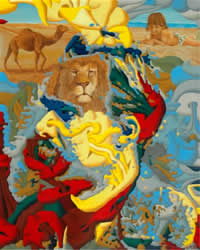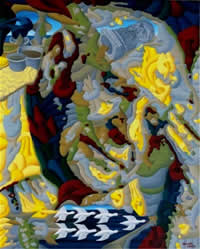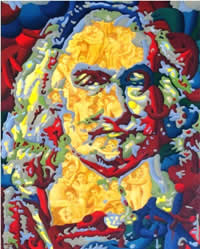|




|
Media - Oil Painting
Address - Puchenauer, Kreuzweg 45, Austria
Email - [email protected]
Website - www.austrianart.tk
Werner Horvath was born in Linz, Austria in 1949 and has been painting since his
youth. Beside this interest he studied medicine in Vienna and was a well known chief
radiologist in Linz, specialising in interventional radiology. Horvath decided to leave the
medical profession at the age of 50 and has been working as a freelance artist ever since. He
opened a studio named "Villa Arte" in Kastellos on the island of Crete (Greece)2003
and his "Atelier Horvath" in Linz, Austria, where he works during the winter.
Characteristic of the painting style of Horvath is the coding of faces into areas of equal
brightness, but divided into different shapes and colours. This creates a special effect: in
bright daylight and close by one usually recognizes only a colourful tangle of plant-like
shapes, and only a more careful examination reveals a face. However, if looked at in dimmer
light or from a distance, the picture looks almost like a realistic black and white photograph
and the represented person appears in the foreground. Thus, the pictures change their
character dynamically, dependent on the physiology of human vision. The artist calls this
style the "New Constructivism".
An example is "Friedrich Nietzsche - The Three Metamorphoses" (oil on canvass, 50 x
40 cm, 2005). The painting interprets a quotation from Nietzsches "Thus Spoke
Zarathrustra", which concisely describes the course of the lives of all people:
"Three metamorphoses of the spirit I name: how the spirit turns into a camel, the camel
into a lion, and the lion finally into a child". In our youth we acquire knowledge and
skills, which are put on us like the burden on a camel. In the flower of our life we resemble
- more or less - a strong lion, courageous and experienced, before we turn again into a child
in old age, in the best and unfortunately often also in the worst sense. (Note: the face of
Nietzsche is clearly recognizable only if viewed from a distance).
|
